 Creative Commons photo by madamepsychosis. Creative Commons photo by madamepsychosis. When creatives speak of being inspired by the Muses, one envisions the gentle whisper in the ear to add a stroke on a canvas or a phrase in a sentence. Perhaps that’s how it works for my fellow artists, but not with me (at least not on my latest project). Normally, I’m the guy who sits down for a month and pounds out a manuscript. Solitude and focus are my primary needs, with food and water being a distant second (Maybe Henry David Thoreau was on to something in Walden). For my latest book, the Muses don’t seem to want to whisper their ideas while proffering a grape or two. I get the characters from my book waking me up at 5 a.m. to start dictating their story. A professional writer would get up and start writing. Then again, a professional writer doesn’t have to get up in an hour to go to a job to pay the bills. Those of us who are independent artists for whom art does not fuel our income, creating our works come in between work and chores and family and sleep. As much as I want, I can’t go to my boss and say I need to take the next week off to write a novel that may, or may not, make back the money I put into it. So, in response to this challenge, I write what I can remember when I get the chance. In the end, hopefully most of the perceived brilliance will make it to the page.
1 Comment
 Creative Commons image courtesy of Trending Topics 2019. Creative Commons image courtesy of Trending Topics 2019. Living in the suburbs of Los Angeles, everywhere you go seems to be the back drop for one movie/TV show or another and when you teach at San Dimas High School, the cult classic Bill & Ted’s Excellent Adventure is often the topic of conversation with outsiders. For example, I just spent a week grading AP exams with teachers from around the country and when I said where I was from, most of them could quote the movie’s most famous line. So, with the third Bill & Ted's movie coming out in 2020, and with our principal being really cool about inviting Alex Winter and Keanu Reeves to the real San Dimas High School, I suggested about a month ago that we make an intentionally campy commercial extending the invitation. Well, I was reminded of the old adage than when you suggest an idea you usually are volunteering for the project. Undaunted, I wrote a first draft of the 3-minute screenplay and worked on polishing the script with a new teacher who was my former student of mine and not even born when the film came out. Our awesome video teacher was on board and so were a bunch of teachers and students who jumped at the chance to be in this video. We had a lot of fun and even the local media liked it. More importantly, in the midst of writing (and rewriting) my first screenplay, I discovered how important it is to work on a little side project now and then to keep the creative juices flowing. Now let’s see if we can get these famous “alumni” to return to campus! That would be most excellent!  Creative Commons photo by Doug Wilkowske Creative Commons photo by Doug Wilkowske While I made the leap to streaming TV last year, my wife and I still watch some shows that have a traditional 24-episode arc. Recently we watched two season finales of series we have enjoyed for years. Both of them used the plot twist of bringing back old characters who had been written off years earlier. One show did so in a believable fashion that stayed true to the character and her motivations, but the second attempt was much less successful (in my eyes at least). The latter featured a storyline about a couple who rode off into the proverbial sunset after years and years of romantic tension but when we checked in with them today, their (and our) hopes and dreams had been dashed on the harsh rocks of reality. While the technique worked (it wasn’t like they had been abducted by aliens and just returned to Earth to save the hero), it was so unfulfilling that I have taken to choosing the “reunion” never happened. I simply erased it from my mental hard drive and reverted back to the previous version of the story. I admit this is a radical step for TV show fan and perhaps a rude one for a fellow writer with nowhere near as much experience. But I was reminded of a valuable lesson: writing is not merely an art but a responsibility. It is easy to introduce more and more complex twists and turns in your narrative. The problem is we can just as easily forget we write for an audience of more than just ourselves. A series of movies or a long-running TV show has developed a loyal following and, as have we learned from the Game of Thrones ending (well, others learned, as I am apparently one of a dozen Americans who is not a GoT fan), pleasing, or at least respecting, the audience is the number-one goal of a writer. Let’s just hope I get it right with my own script. Thankfully, I have a fellow scribe much better at the craft to keep me on the straight and narrow.  Creative Commons photo by David Yu. Creative Commons photo by David Yu. As we speak, I am doing something most novelists only dream about: I am working with a friend to convert one of my novels into a screenplay. Of course, like one might expect, visions of being on the set while famous people bring your words to life danced through my head (and, rather foolishly, I was already pondering the opening lines to the Academy Award speech I will never give). I quickly wrote a first draft that closely matched the book, but condensed the key elements like a fine balsamic reduction. I was rather pleased with how easy the process was. Beaming like a proud parent, I sent it off to my screenwriter friend who wanted to partner with me. He took a quick look at it and quickly informed me that, while I was a good writer of books, stories on the screen just are not told the same way. It’s all about the visuals and the pacing is much different. So, what we have set out to do is create a story inspired by my original work. What I thought was going to be like puppy undergoing a bit of primping to be ready for a dog show has become like a caterpillar being transformed into a butterfly. The core elements are the same, but they are displayed in radically different ways. I am learning how to write all over again and, when I watch a TV show or movie, I am seeing with new eyes and listening with new ears. My critiques are more nuanced, but I also see the things writers and directors do well and I appreciate their genius more than ever before. So, while I might grumble like J.R.R. Tolkien’s ghost when Peter Jackson took a bit of cinematic license with the Lord of the Rings series, I must admit that the movies were fairly popular and works of cinematic splendor. I also need to keep in mind books and movies are two separate entities. I have a family member who loves A Prayer for Owen Meany, but does not like the film adaptation Simon Birch at all. I, on the other hand, rather disliked the book but absolutely adore the film. While it may be hard, it’s important to remember the caterpillar of the written word and the butterfly of the moving picture are both beautiful in their own ways. 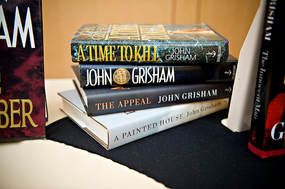 I recently read John Grisham’s latest, The Reckoning, a fascinating tale whose content and format are a departure from his norm. I wasn’t quite sure how to review the book and, when I went to read the comments of others, I realized I wasn’t alone. Those who are fans of John Grisham are addicted to the formula that won him such popularity: a young, idealistic lawyer goes up against impossible odds, beats the bad guys and (often) gets the love interest in the end. Most of his career has been based on this winning strategy. In his latest book, which uses an unexplained murder case as bookends for a harrowing tale about the Bataan Death March, Grisham gives readers a Gothic tale, murkier and more ambiguous than his normal fare. This has irked his readers, but I think that’s a bit unfair from the point of view of the writer. Growing up I read The Hardy Boys, while girls my age may have read Nancy Drew. These were formulaic serials in which variation and maturation were strictly forbidden. In the modern era, authors like Clive Cussler and Sue Grafton have done much the same (though Grafton, who passed in 2017, explored a bit more growth with her protagonist Kinsey Millhone). But what happens when writers want to grow and expand beyond what they have done before or even (Perish the thought!) write in a different genre? Well, they have to get a bit creative. Famed horror writer Stephen King created the pen name Richard Bachman, while more recently, best-selling Christian author Davis Bunn as adopted the persona of Thomas Locke to produce general market titles in a dizzying variety of genres. These writers, and many others who have assumed noms de plume to express their creative range, have done so because they yearned to defy the expectations placed upon them. As for my thoughts on The Reckoning, I will agree that while the book is not a good “John Grisham novel”, it is a good novel by John Grisham. The fact I have to make this distinction saddens me. 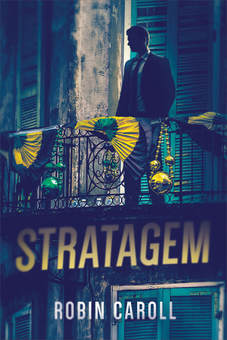 I received a complimentary copy of Stratagem for an honest evaluation of its merits. The book’s premise took the reality TV concept and stretched it to its limits, which intrigued me. I am glad I was not disappointed. Carrol established compelling characters (with one small deviation which I will address later) and the story line is very well paced. At one point, I was fascinated how the description of the video replay made me think the author was writing a screenplay, as she constructs the narrative with such precision that I could easily visual what was happening. Carrol also makes a big deal about the timeline which is important. I tend to read quickly, which I do not advise during these key segments because it is easy to not keep track of characters and their movements if you are going at too fast a clip. Carrol also does a good job with her red herring of a suspect, as I did not figure out the actual culprit until near the reveal. The wrap-up was rather pleasant as well. The only real complaint I had was motivation of the female detective. To her credit, Carrol provides an explanation for hard-line approach, but it seems to wrap up a little too neatly and the character is back on the right page before you know it. Again, this is the B story, so it’s not that big of a deal. In short, if you enjoy a good suspense story, you really can’t go wrong with Stratagem, or, if this work is any indication, with Carrol’s other titles. And, for a fortunate reader, here's your chance to win an $25 Amazon gift card.  Whether laced with abject fear or indescribable giddiness, one thing all writers dream about is going on a book tour. You have visions of flying into a faraway town and being swept from book shop to book shop. You meet fans, sign copies of your masterpiece and get interviewed about you characters and what makes them tick. When you’re an indie writer, this is where the bubble bursts. Forget jet-setting and limo rides. The only book tour you can afford to take is to chatting up about your latest tome with the cashier at Trader Joe’s or Target. But there are economical ways to get people buzzing about your book and one of them is the virtual book tour. Basically, you sign up for a service where people agree to read your books and review them, providing that much needed booster shot either before or just after a book launch (Before works best). The plus side is that people who others listen to are reading your book. They are sharing their thoughts, discussing the relative strengths and weaknesses of your story line and character descriptions. You have arrived. People who enjoy your genre have picked up your book and are telling their friends about it. This also is the downside. The problem with indie writing in particular is that you tend to live in this isolated bubble where your family and friends who love you are just amazed you wrote a book (or another book). They likely aren’t going to say anything too bad. When you ask people to give honest opinions in their reviews, that is exactly what they are going to do. While I have more Amazon reviews than any of my other titles, my overall rating is lower than with my previous books. I still have really good reviews, but I’m probably not as good a writer as those who love me kept telling me I was. All in all, I wholly recommend creative and cost-effective ways to promote your books, even if not every response is glowing. There is an axiom about too much heat and a kitchen that comes to mind. 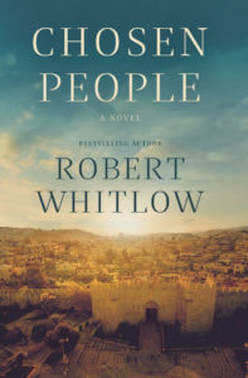 I received a complimentary copy of Chosen People in exchange for an honest review of its merits. For years, Robert Whitlow has been marketed as the John Grisham of Christian Fiction, which I think might be a bit unfair. While it may have been true in the beginning of the Christian legal fiction genre there was no one but Whitlow, but that is not the case today (Cara Putman comes readily to mind, for starters). Also, it presupposes there is one style in which one can write a legal fiction: in a conversational, around-the-campfire storytelling yarn. That may be how Grisham writes, but Whitlow has his own style. Whitlow has matured in his narrative prose (as do all good writers) and that is on display in Chosen People. The characters are well formed and there is some humor to break up the tension that runs throughout the story. The author clearly has done his research and the locations both near and far feel real. As the characters walk the streets of Jerusalem, for example, you feel you are doing the same. And there were some secondary characters that were a nice addition to the tale. I suppose that my chief storytelling concern was that the love triangle was not resolved in a way that made sense to me. In Whitlow’s attempt to set up both potential partners as interesting prospects, I thought Hana made a choice that went against her character. Then again, Whitlow might argue that he wasn’t setting up a triangle at all, or that I didn’t truly understand what was driving Hana and her decisions. The ending also seemed a bit rushed, but that tends to be an unfortunate trend in contemporary storytelling. But, to be fair, these are smaller concerns when weighed against the positive elements of the tale. All in all, nicely done, Mr. Whitlow. Check out this chance to win three of Whitlow's books. 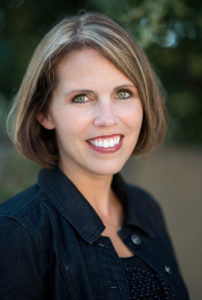 A lawyer and college professor, Cara Putman’s skills in crafting solid, fast-paced legal fiction comes from a mixture of experience and imagination (unless she’s actually been chased down by an angry drug cartel leader, which I hope is not the case). Delayed Justice, the latest book in the Hidden Justice series (Beyond Justice and Imperfect Justice round out this trilogy) features a great blend of solid writing and a good story. When did you first realize you were a storyteller? I have always loved books, but I was 13 or 14 when I actively started writing and dreaming up stories of my own. When I started college at 16, life wasn't really my own, so I stopped writing until I was 31. But I have always read voraciously. I must read. I must be surrounded by story. So, it makes it natural that I see stories all around me and itch to tell them. What do you love about the writing process? I love the research. I love the discovery of the characters. To me the hardest part is the beginning. Getting the idea cemented in my mind. Figuring out how the characters will interact and what they really want. Then I hit a point where the story simply flows. That is the best! I love to live in that space where I can't wait to get back to writing. It carries me through the not as fun parts. What is the hardest part of being a writer? How solitary it is. I'm an extrovert, so I can't just write. I have to have space to interact with people and pour into them. That's why the combination of writing and teaching at a world-class university works so well for me. I also don't enjoy the early stages of wrestling for the next big idea. Where do you find your inspiration? I find my inspiration all around me. For the Hidden Justice series it was in newspaper articles and in people I know. I take many different situations and pull them together and twist them up into something new and different. That's where the germ of the story is located. And that's what keeps me writing and marketing for the months each story requires. What are you working on right now? I'm in the idea germinating stage. I have several floating around in my mind and trying to flesh a couple up enough to sell to my publisher. These will be standalone legal ideas and that excites me! To find out which of these ideas blossoms into her next novel, follow Cara on her website. 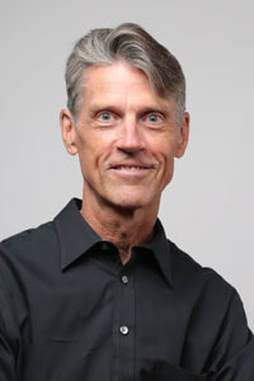 Photo Courtesy of The University of Texas. Photo Courtesy of The University of Texas. H.W. Brands, who holds the Jack S. Blanton Sr. Chair in History at the University of Texas at Austin, is a master storyteller. But instead of creating worlds of his own, Brands introduces readers to America’s past in a way that engages as it educates. One of the best historians in the nation, his narrative biographies on Benjamin Franklin and FDR were both finalists for The Pulitzer Prize. His narrative style is conversational, yet refined in a way few are able to match. When did you first realize you were a storyteller? When I became teacher. I first taught high school math, and I found that my stories about math hooked my students on the subject. As I segued to history, I kept telling stories. Still am. What do you love about the writing process? The only part I don't like is reading page proofs. At that point the scope for revising is severely limited. I find myself wishing I could make changes my editors won't allow, for cost reasons. Everything else I like. What is the hardest part of being a writer? I haven't found any hard parts yet. See above. If it was hard, I wouldn't do it. Where do you find your inspiration? The reason I write history is that you couldn't make this stuff up. No one would believe you. History is an inexhaustible supply of tales about the comedy and tragedy of being human. What are you working on right now? My book Heirs of the Founders will be published in November. My next book is a history of the American West, currently called Dreams of El Dorado. To be published in the fall of 2019. To find out more about Brands and what he is working on next, check out his website. |
AuthorI've been writing stories and taking photos since I was old enough to hold a pencil and stand behind a tripod. Archives
February 2024
Categories
All
|
 RSS Feed
RSS Feed